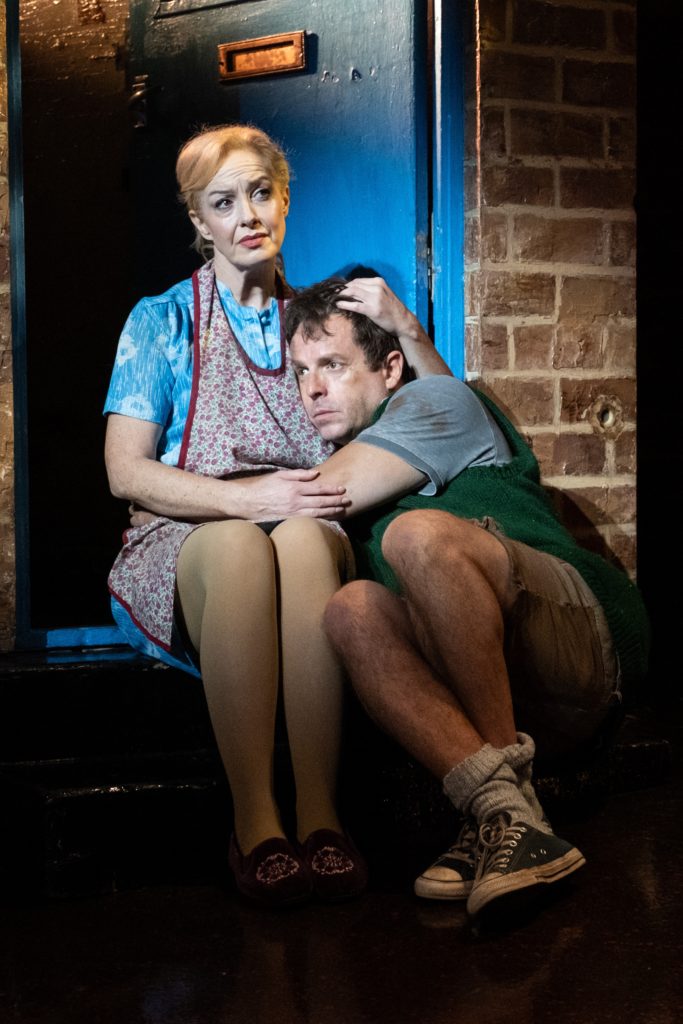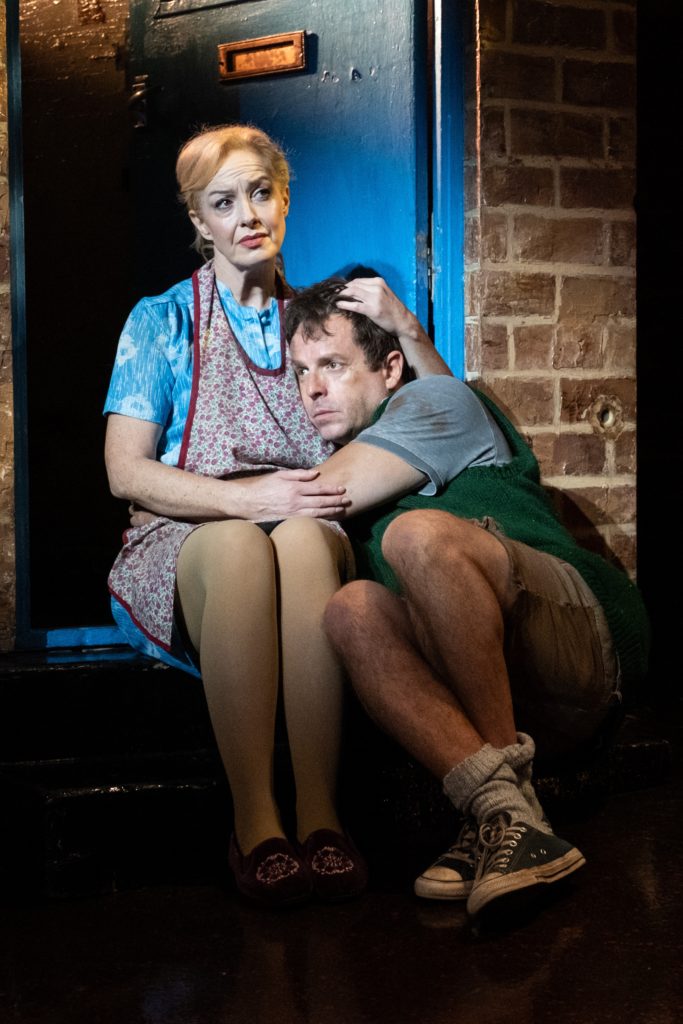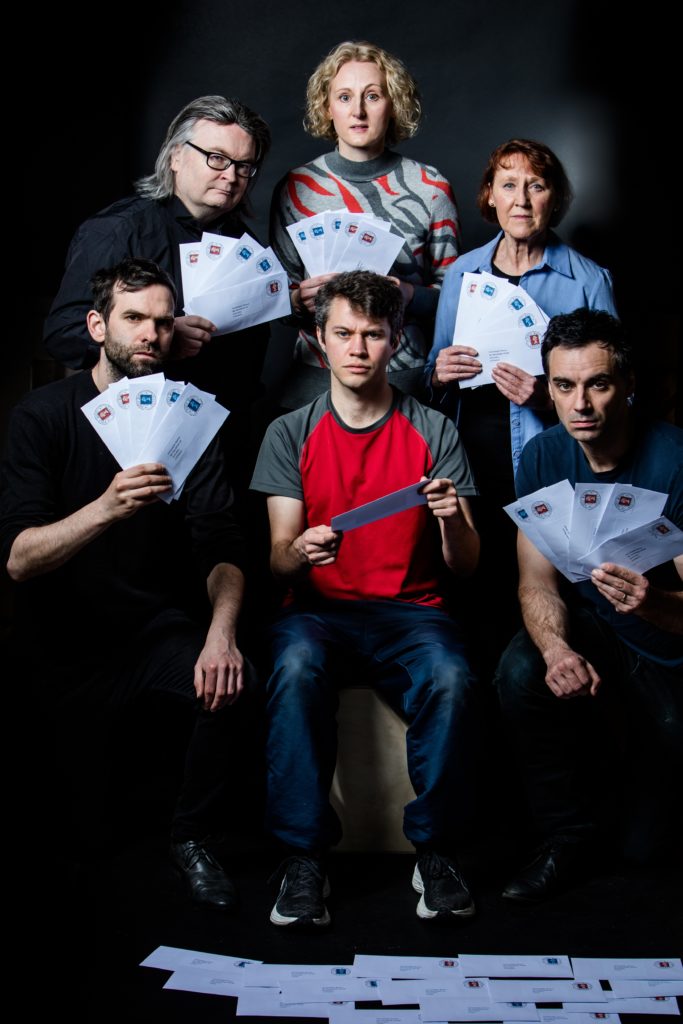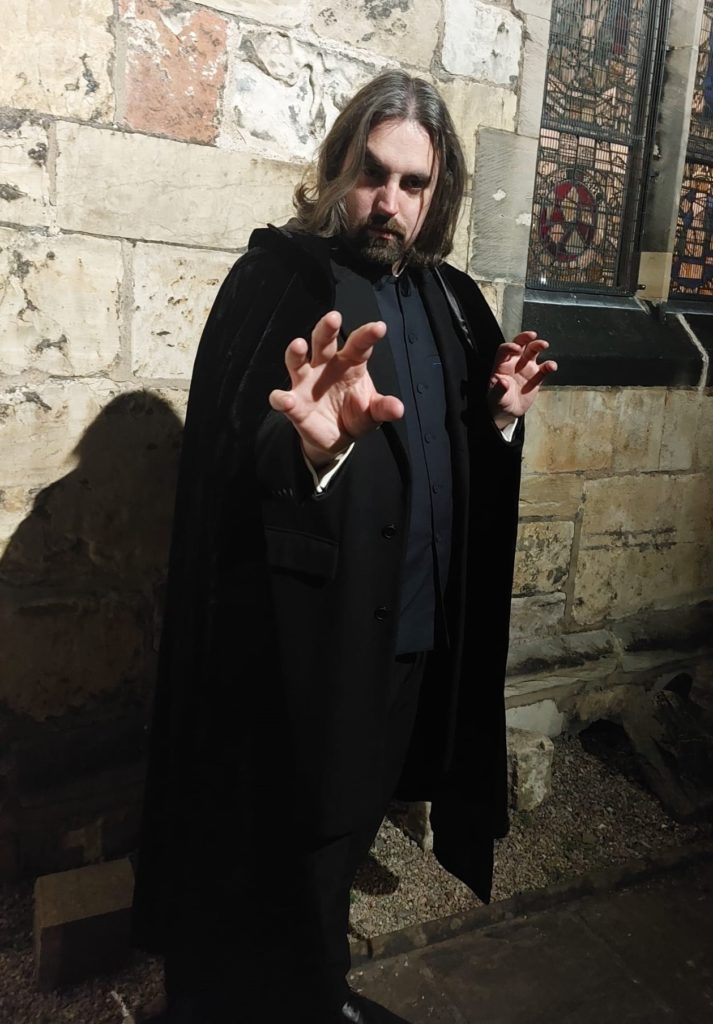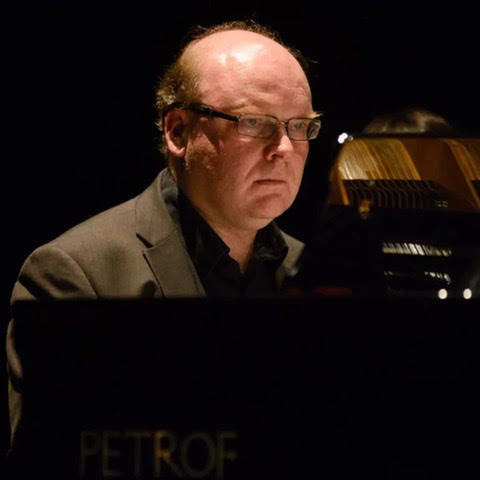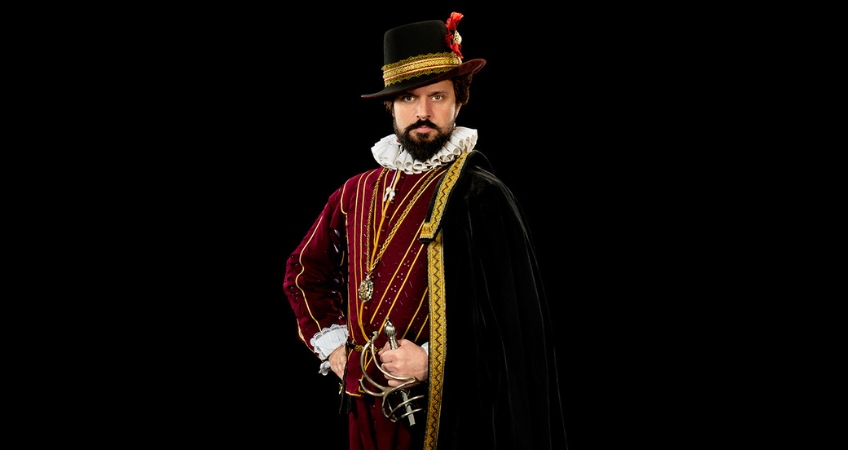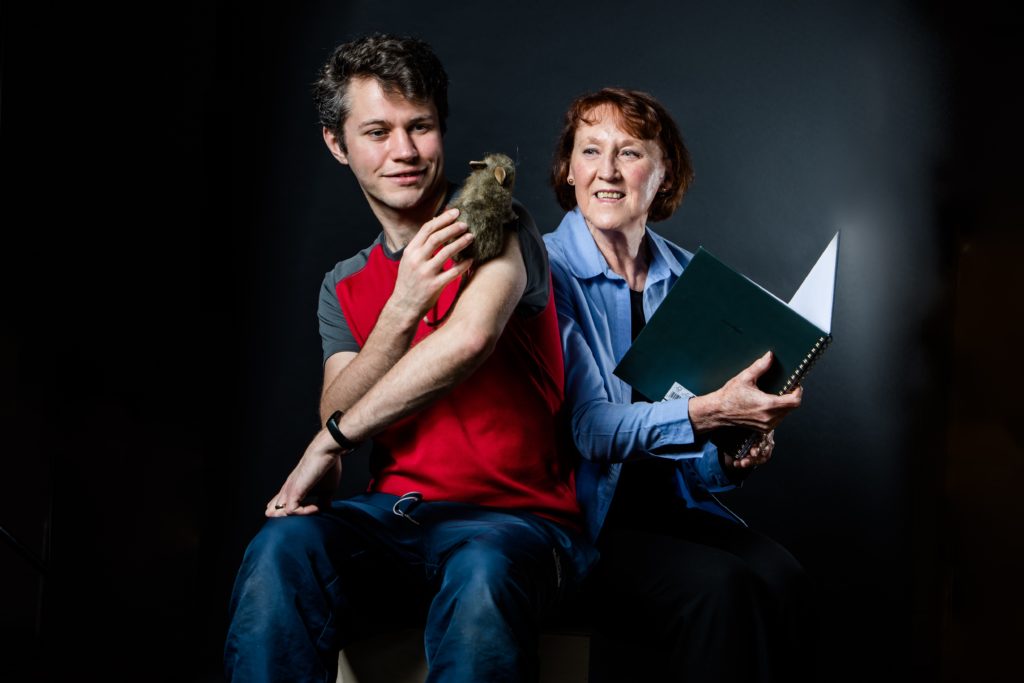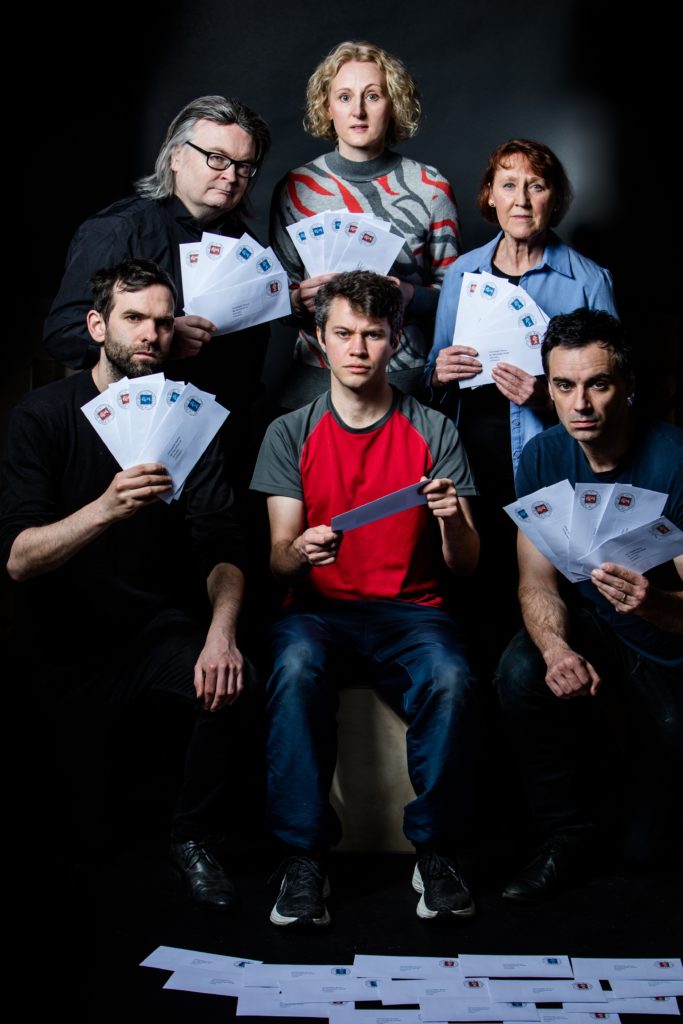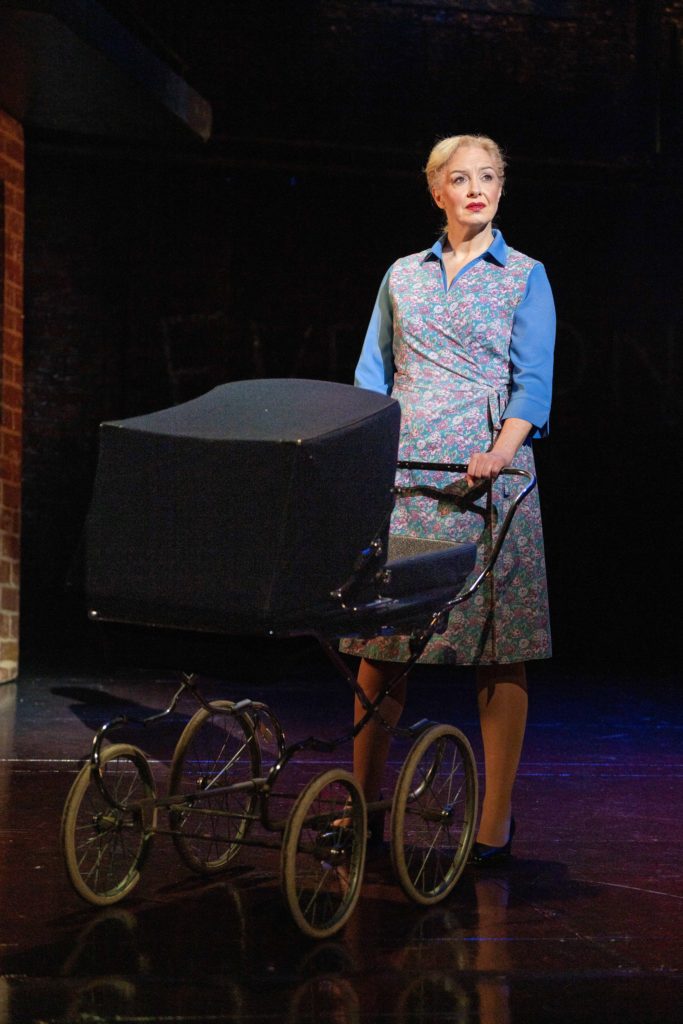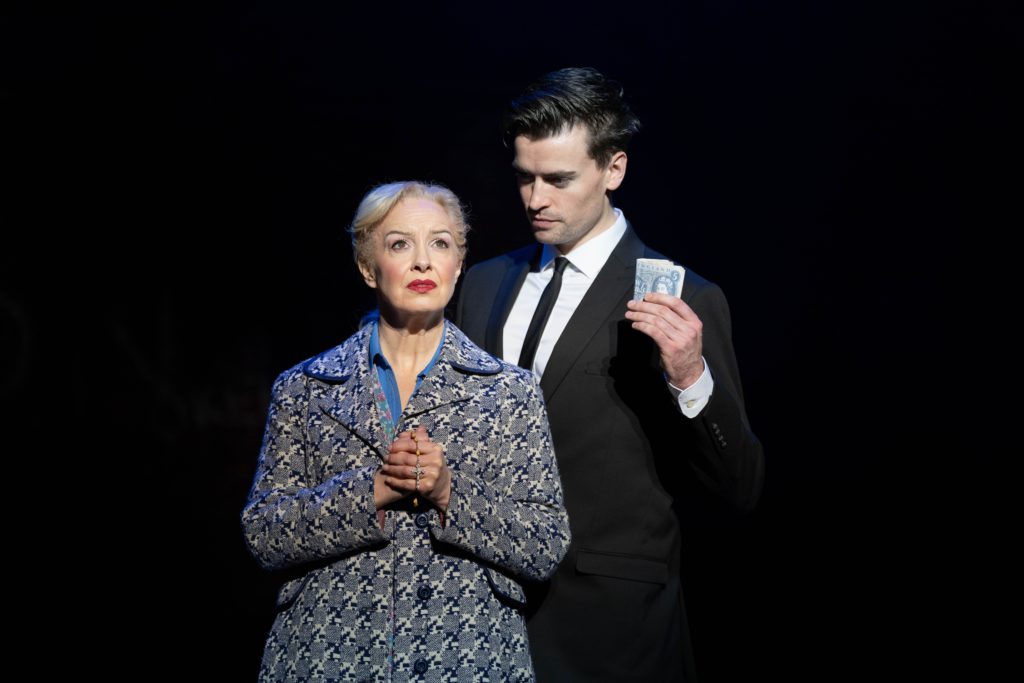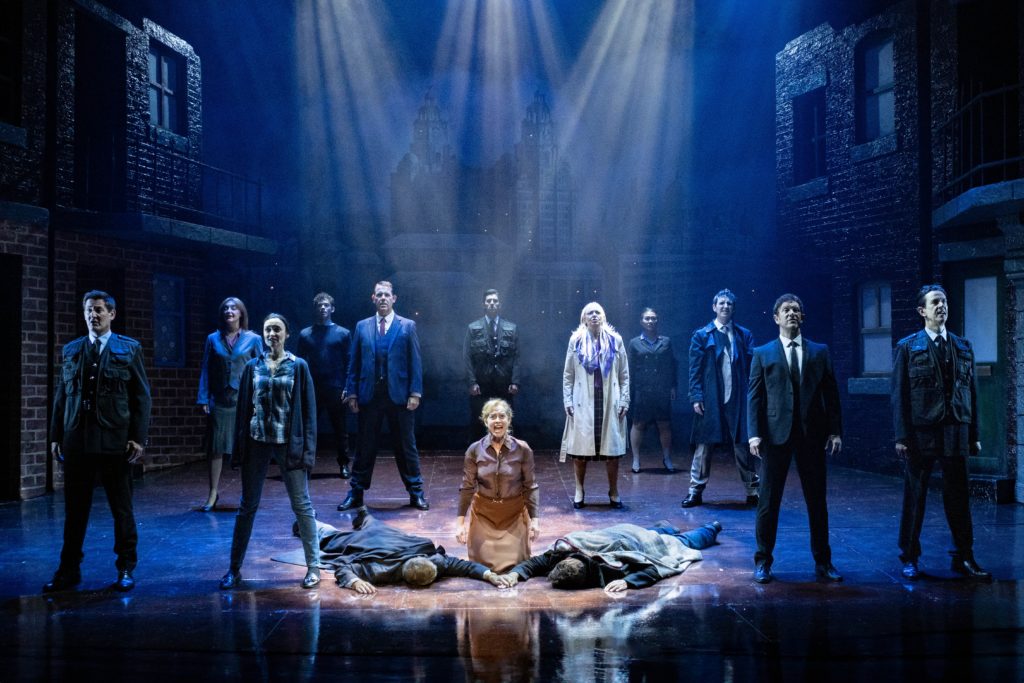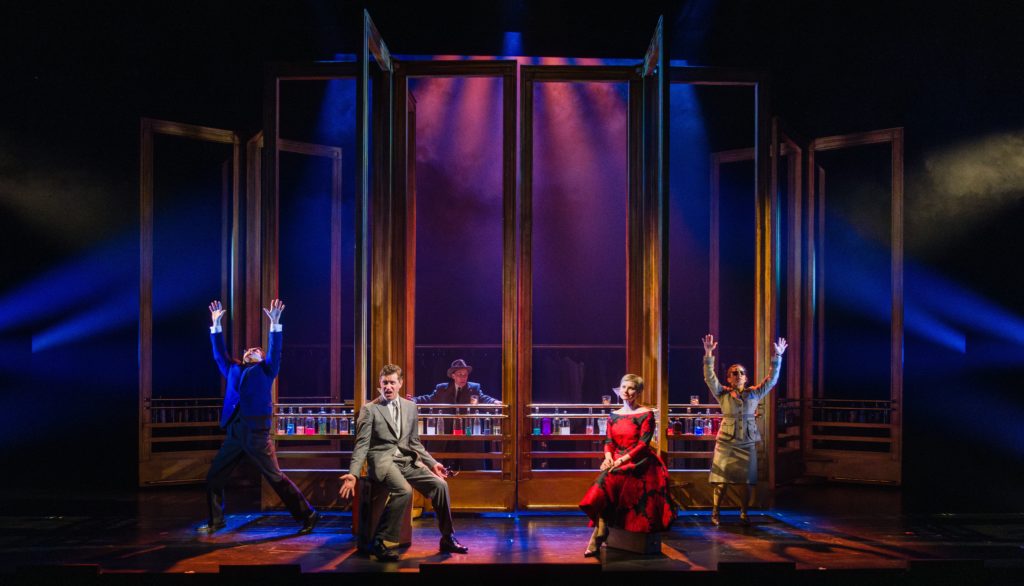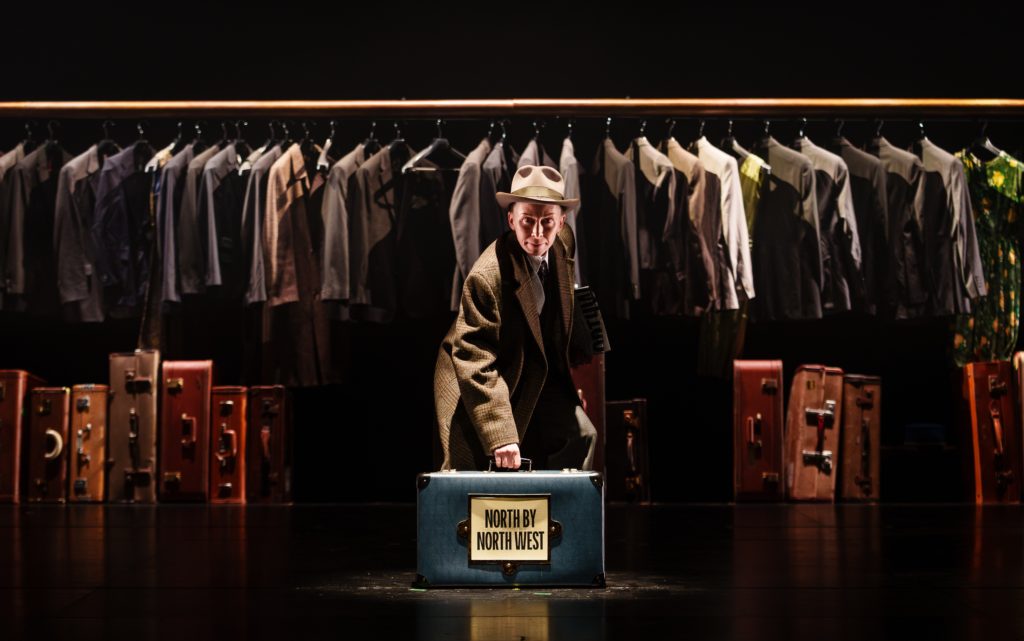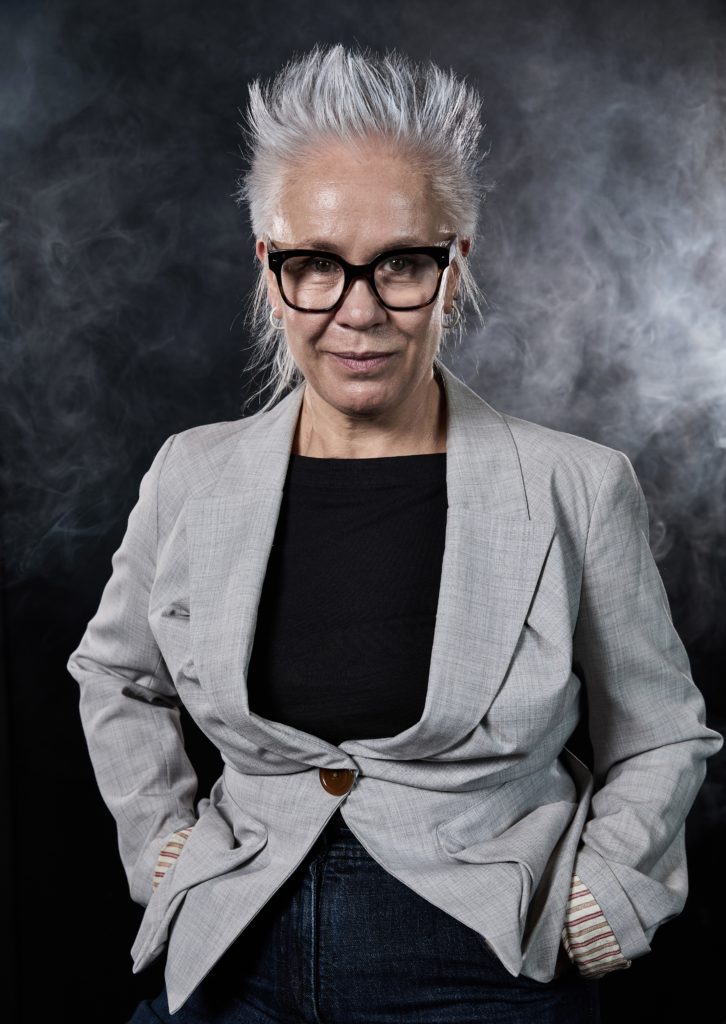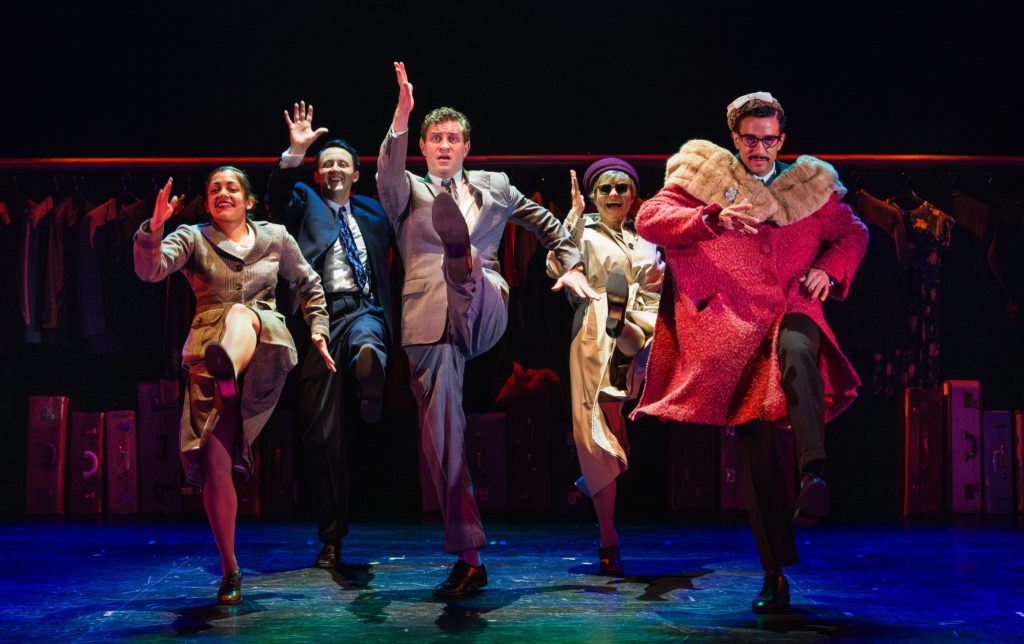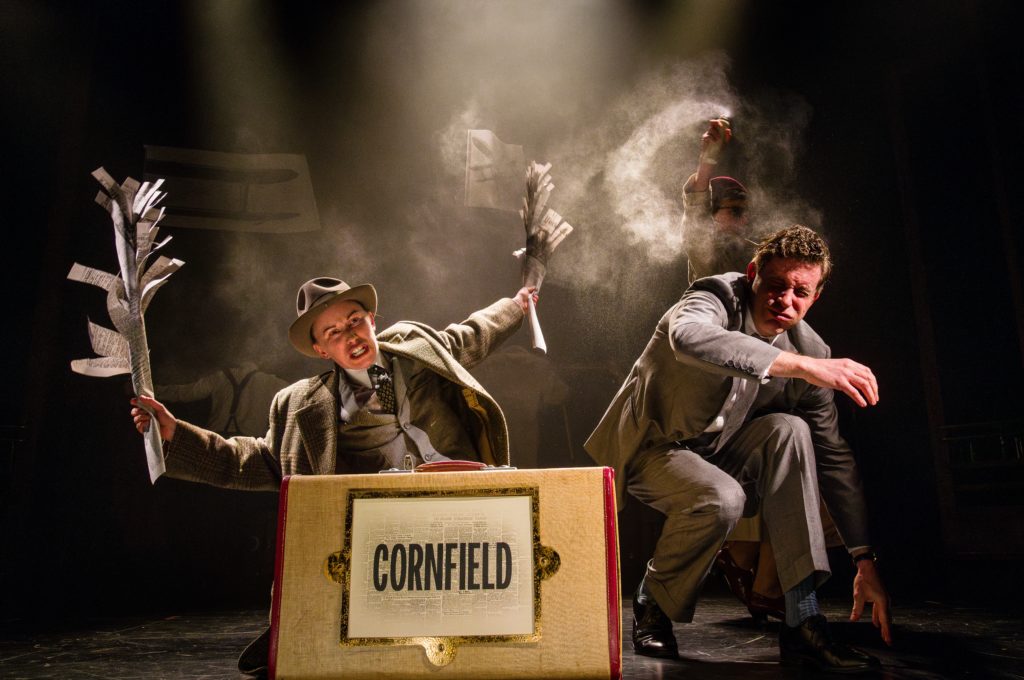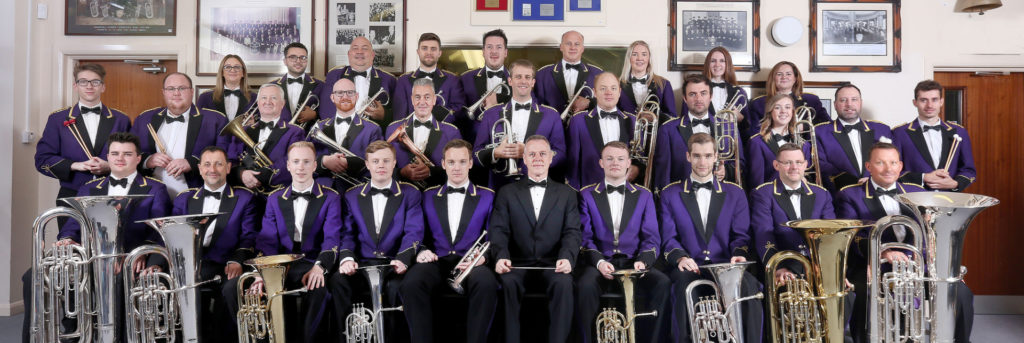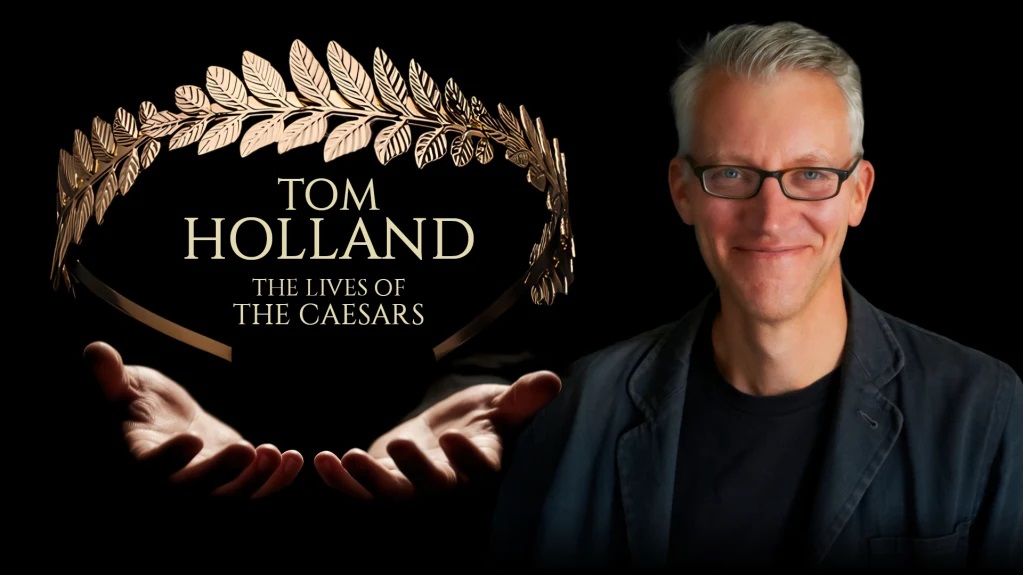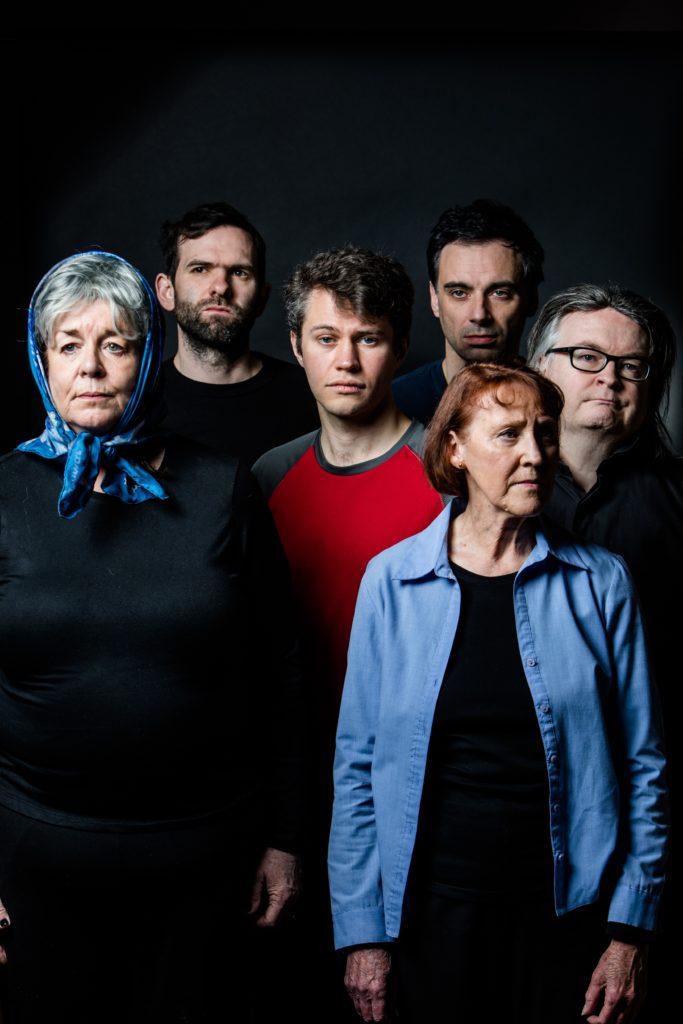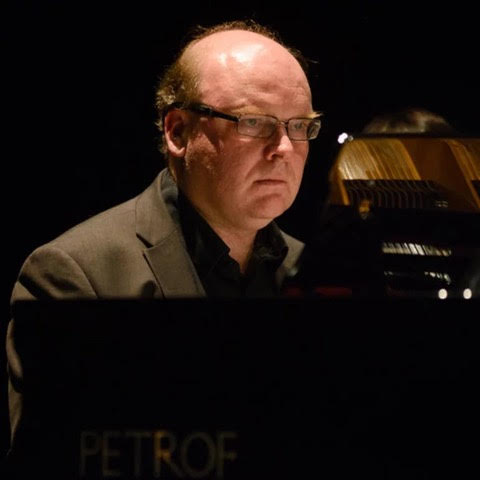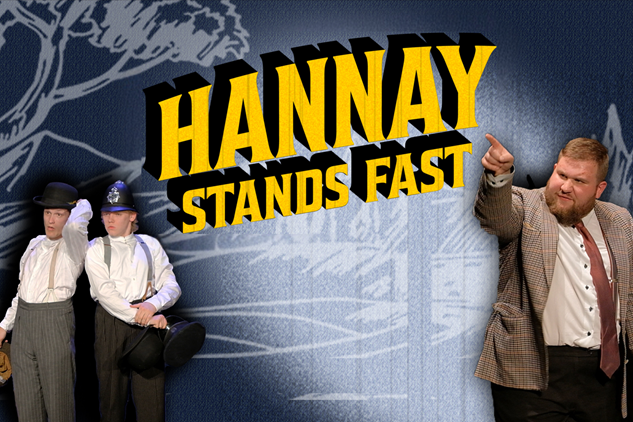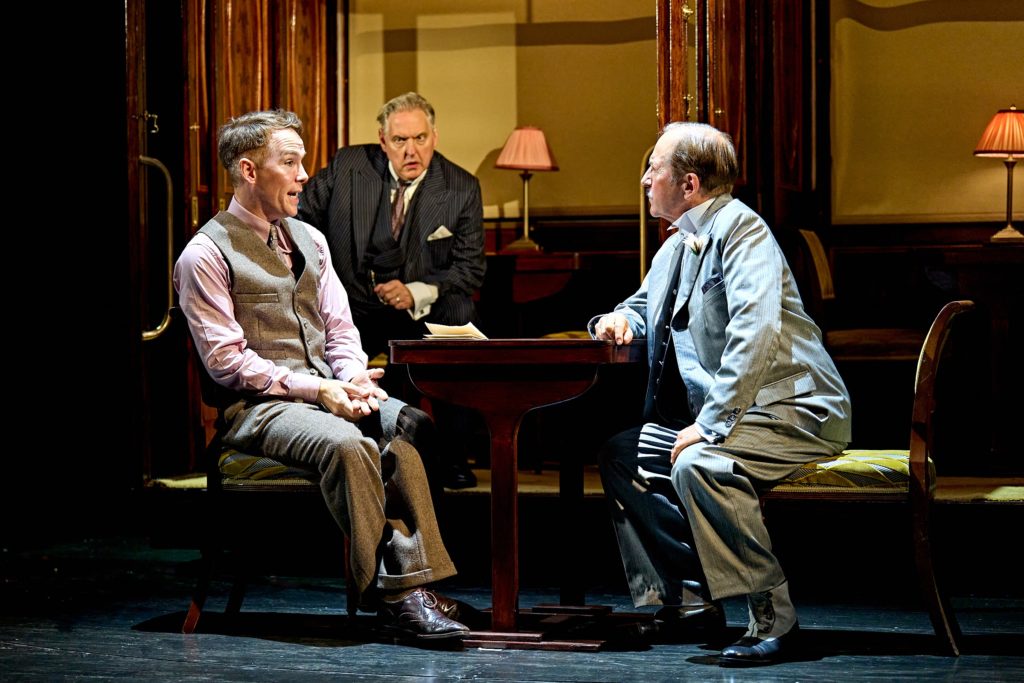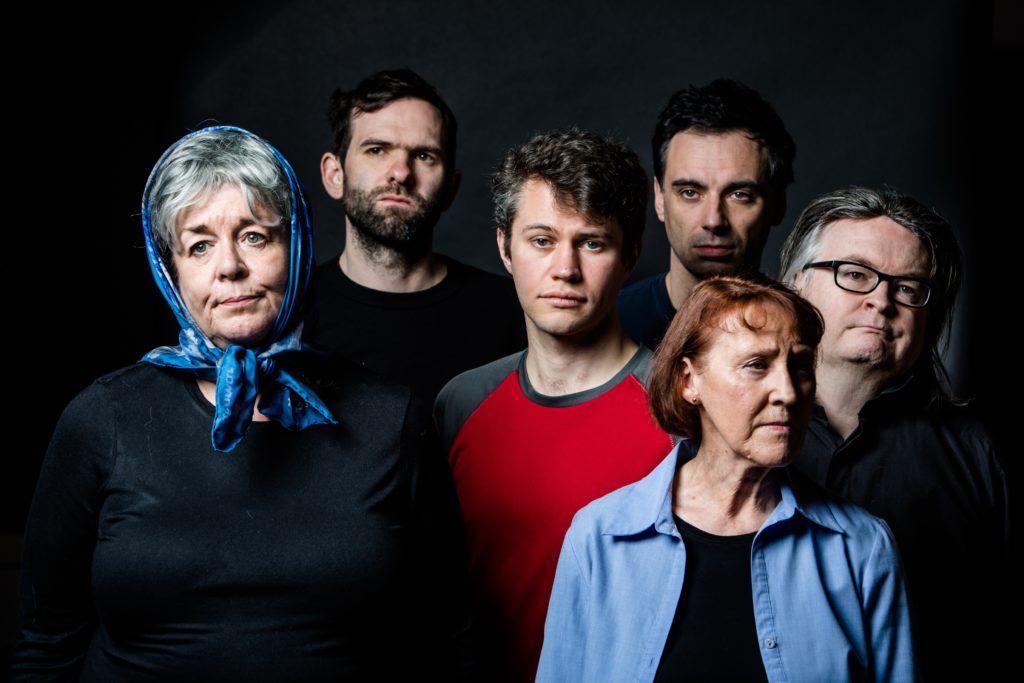
Alison Taylor’s Mrs Alexander, left, Jonathan Wells’s Christopher Boone, centre, and Beryl Nairn’s Siobhan with Pick Me Up Theatre ensemble members Jon Cook, Tom Riddolls and Lee Harris. Picture: Matthew Kitchen
THE Curious Incident Of The Dog In The Night-Time is playing York for the third time in ten years.
First came the National Theatre’s bells-and-whistles production, winner of seven Olivier awards, at the Grand Opera House in January 2015, with its white box framework of graph-paper lines on moving walls and flooring to match the mathematical mind of teenage protagonist Christopher Boone.
Next, the performing arts department at All Saints RC School combined dance, original livemusicand movement sequences in a February 2023 adaptation wherein ten narrators represented Christopher’s imagination and inner thoughts, while highlighting the key motifs of letters, as well as Chris’s love of numbers and space, through physical theatre and projections.
Now comes York company Pick Me Up Theatre’s interpretation, using University of York history graduate Simon Stephens’s superlative script, premiered by the National Theatre, under the imaginative and inventive direction of Andrew Isherwood, a regular presence on the York stage and increasingly in the director’s chair too.
“Directing this show has absolutely been one of the best experiences over the past 12 years I’ve had making theatre,” he says in his programme note – and it shows in an ensemble production that is cinematic yet boldly theatrical in its fusion of video projection, effects and lighting and sound by Will Nicholson, always in harmony with the mathematical shapes, emotional frictions and physical theatre of Isherwood’s team of 11 players.
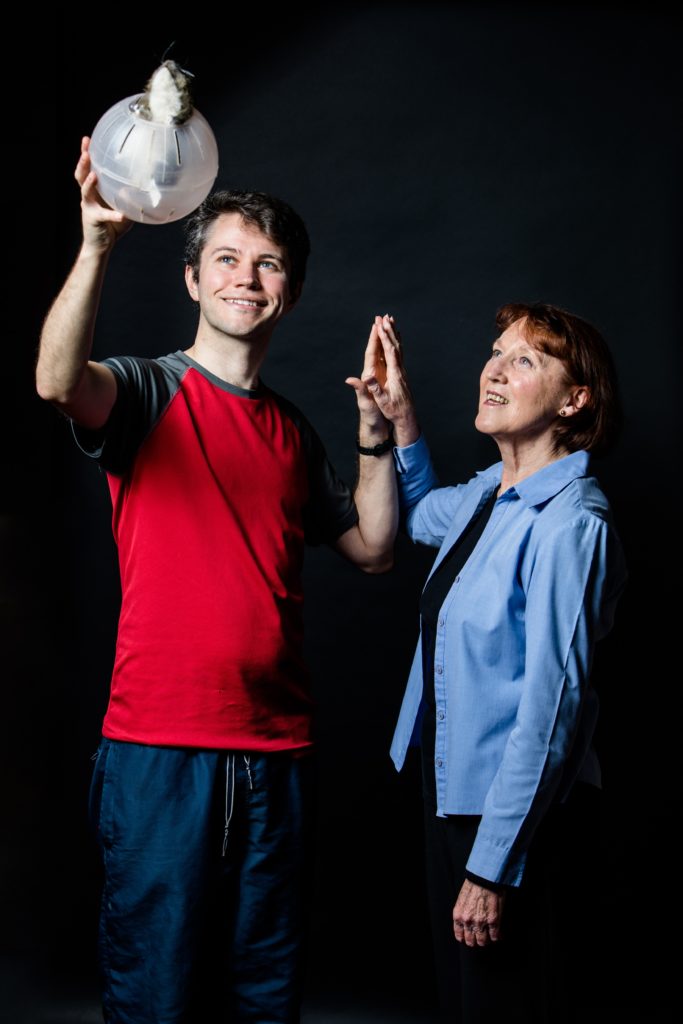
Jonathan Wells’s Christopher Boone and his pet rat Toby with Beryl Nairn’s Siobhan. Picture: Matthew Kitchen
His choice of recorded music is impeccable too, especially Cat Power’s heart-rending Maybe Not and Moby’s God Moving Over The Face Of The Waters, last used so evocatively in Robert De Niro and Al Pacino’s face-off in Heat in 1995.
On arrival, the audience is confronted by the sight of Elanor Kitchen’s model of a dead dog, Wellington, pinned to the ground by a garden fork, on the end-on raised stage. Welcome to a “murder mystery like no other”.
Jonathan Wells’s Christopher John Francis Boone is rocking, traumatised, even more so when accused of killing the dog by Mrs Shears (Natalie Melia), his potty-mouthed neighbour in Swindon, Wiltshire.
Christopher is 15 years three months and two days old; he attends a special needs school, and although he is never attributed with Asperger’s syndrome by source novel writer Mark Haddon, this fearful yet fearless boy can calculate A-level Maths to A* standard at 15 but is ill-equipped to work out everyday life.
Christopher does not like to be touched, is incapable of lying and has powers of logic beyond conventional reasoning or normal patterns of behaviour. He loves red, his lucky colour, but rejects an offer of Battenberg cake because of his dislike of yellow.
Such frankness and original thinking instil humour and wonderment in his bright, naive, unpredictable utterances, but pain and puzzlement bubble beneath the surface too in Jonathan Wells’s performance, expressed in his twitching, fidgety fingers and downward gaze.
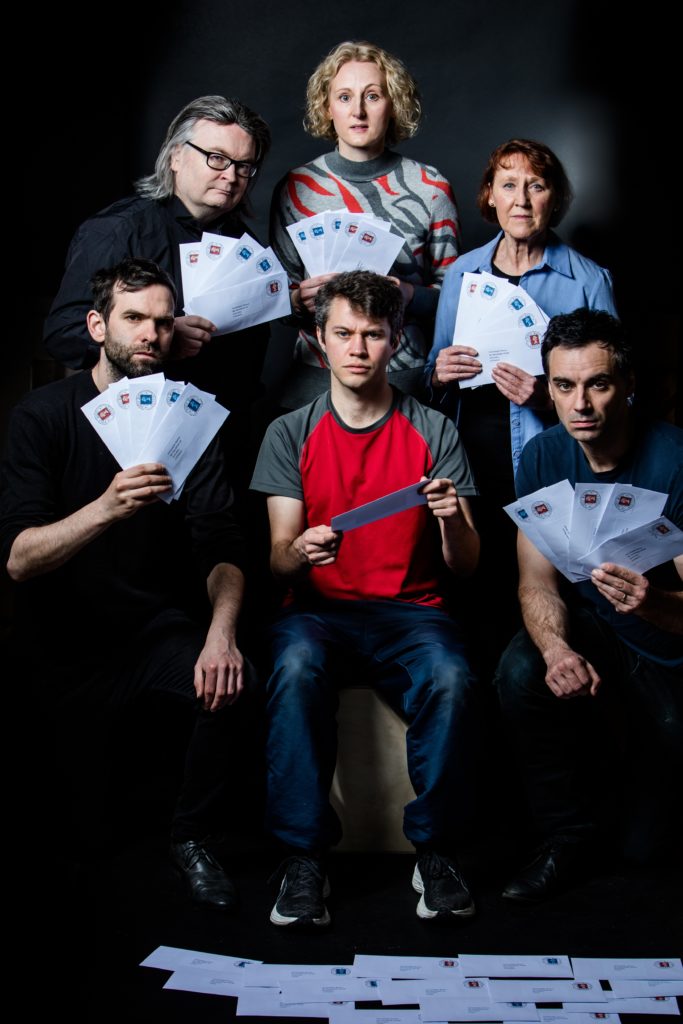
Jonathan Wells’s Christopher Boone, centre, with fellow Pick Me Up Theatre cast members Jon Cook, left, Lee Harris, Catherine Edge, Beryl Nairn and Tom Riddolls. Picture: Matthew Kitchen
This Elvington GP has favoured musical theatre in his York stage appearances, but here he returns to straight theatre for the first time since Berkoff and Strindberg plays in his Sheffield student days, making you wonder why he has not done so previously.
What a revelation his performance is. Slim of frame, boyish of looks, not unlike Ben Whishaw, he is 34 yet wholly believable as 15 – the age, by the way, that he took his A-level in computing, giving him an immediate connection with Christopher.
His physical demeanour is only part of the equation, Equally significant is how to convey Christopher’s intelligence and more significantly, the way he thinks, and both Wells and Isherwood maximise how Stephens’s script travels both inside and outside Christopher’s head as he vows to defy his father by “doing detective work” to hunt down Wellington’s killer.
Like a Keaton or Chaplin, Wells’s Christopher makes us laugh at the absurdity of others, or whoever he winds up with his candid, unconventional manner, but he never sets out to be a clown or funny. Christopher is serious, earnest, but his comments are the stuff of observational comedy.
Such is the skill of novelist Haddon and playwright Stephens’s writing, where we wholly empathise with the young boy who follows his own path, however unsafe he may feel amid the chaotic cacophony, on a bigger journey of discovery that combines abnormal intellect with bewildering, baffling new experiences.
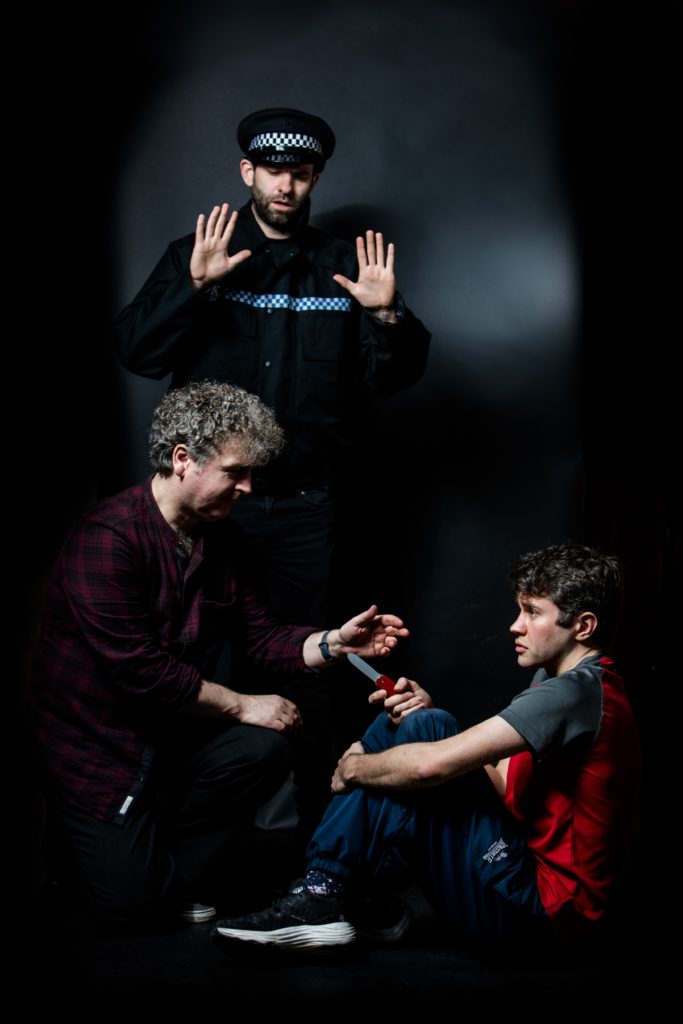
Jonathan Wells’s Christopher Boone cowers from his father Ed (Mike Hickman) as a policeman (Jon Cook) looks concerned. Picture: Matthew Kitchen
Yes, we laugh, but we are also stopped regularly in our tracks by the feeble behaviour of his elders, but certainly not betters, who let him down, in particular his mendacious father Ed (Mike Hickman), a boiler engineer with a tendency to boil over into rage, even violence.
The one exception is special needs teacher and mentor Siobhan (Beryl Nairn), who encourages him in his writing.
Catherine Edge, so elegantly impressive in Settlement Players’ Separate Tables in February 2024, excels again as Judy, the mother that, spoiler alert, Christopher had been told was dead but had in fact fled to London with her feckless lover, neighbour Roger Shears (Lee Harris). Hers is the most emotionally complex role, the least black and white, and Edge finds those nuances.
In the ensemble, Alison Taylor, Natalie Melia, Lee Harris, Jon Cook, Tom Riddolls and Alexandra Mather both play multiple roles and bond in choreographed movement and babbling, threatening noise on Christopher’s first solo train journey to London with pet rat Toby, into the pandemonium of a Tube station, and out on to the alienating, disorientating streets.
Nicholson’s lighting is key to Pick Me Up’s technical flourish, but all in service of Wells’s remarkable portrayal of a boy with a beautiful mind in search of a safe haven.
Pick Me Up Theatre in The Curious Incident Of The Dog In The Night-Time, Theatre@41, Monkgate, York, 7.30pm tonight and tomorrow; 2.30pm and 7.30pm, Saturday. Box office: tickets.41monkgate.co.uk.

